Sudan fighting: Street battles dash hopes of Eid ceasefire
- Published
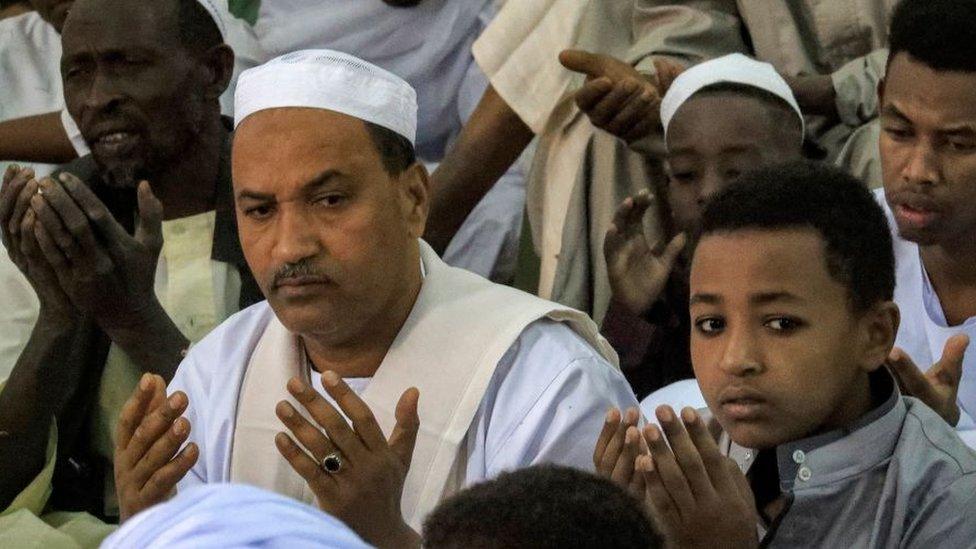
There is a sombre mood as people mark the end of the fasting month of Ramadan
Street battles are being fought by Sudan's rival forces in the capital, Khartoum, in an escalation of violence despite calls for a ceasefire to mark the Muslim holiday of Eid al-Fitr.
The paramilitary Rapid Support Forces (RSF) said they had agreed to a three-day truce and several hours later the army did the same.
But bombing, shelling and gunfire continue.
At least 400 people have been killed in a week of fighting.
It is the result of a bitter power struggle between two factions of the Sudanese military leadership over how the country should be run.
A Sudanese employee of the UN's International Organization for Migration has been killed in crossfire south of El Obeid, some 430km (270 miles) south-west of Khartoum, the agency says, external.
The army says it has deployed more weapons and soldiers to "comb" the streets looking for members of the rival paramilitary Rapid Support Forces (RSF).
Khartoum's international airport is still closed but the European Union says it is planning for a possible evacuation of the 1,500 or so EU nationals in the city. Other foreign embassies - the US, UK and Japan included - have so far been unable to bring their citizens home.
On Friday US Army General Mark Milley, who heads the US military, discussed the safety of Americans in Sudan with the army commander, General Abdel Fattah al-Burhan, as the US considers evacuating its embassy staff.
LIVE: Latest update from the fighting in Sudan, and other stories from Africa
UNSUNG HEROES: How food and medicine is being distributed
PODCAST: The origins of the conflict
SIMPLE GUIDE: What is going on in Sudan?
Earlier on Friday residents in Khartoum said it felt like a ghost town, in stark contrast to the joyful mood usually seen during Eid.
People there and in the twin city of Omdurman told the BBC they were still feeling a mixture of shock and anger.
Two women crying at the entrance to a mosque explained they had lost several family members - including two children.
Watch: Shocking sounds of heavy bombardment in Sudanese capital Khartoum
Eid is the Muslim festival marking the end of the fasting month of Ramadan - and Sudanese people usually relish it as a time for visiting family and eating together with their neighbours, while children play and enjoy sweets.
Prayer services would normally be packed on Eid, but on Friday many mosques in Khartoum and Omdurman were almost empty as people sheltered at home.
Others have fled the capital for their home regions.
But this is not an option for Mahasin Dahab and her family. She told the BBC's Newsday programme she cares for a disabled relative who would find it "extremely uncomfortable" to leave the city, plus there was a risk that people elsewhere could be less accepting of him.
So she is staying put for the time being, despite running out of water and grieving the deaths of colleagues and neighbours.
At its heart, this is a power struggle between two powerful military men over the roadmap for returning the country to civilian rule following the 2019 coup that toppled long-time leader Omar al-Bashir.
As part of that plan the country's current military government - made up of the army led by General Burhan and the RSF led by Mohamed Hamdan "Hemedti" Dagalo - were supposed to merge their forces.
But the RSF has resisted this change, and began to mobilise its troops which escalated into full-blown fighting between the two sides last Saturday.
Thousands of people have been injured in the past week but medical centres are overwhelmed and under-equipped to treat the influx of patients - the fighting has left 70% of hospitals in conflict zones out of service, according to the Sudan Doctors' Trade Union, external.
Along with Khartoum, the western region of Darfur, where the RSF first emerged, has also been badly affected by the fighting.
"The situation is catastrophic - the majority of the wounded are civilians who were hit by stray bullets, and many of them are children," said a Médecins Sans Frontières worker at the only hospital still functioning in Fasher town, North Darfur state.
The UN has warned that up to 20,000 people - mostly women and children - have fled Sudan to seek safety in Chad, across the border from Darfur.
Diplomatic pressure is being stepped up to end the fighting - with numerous countries and international bodies calling for an immediate ceasefire and offering to mediate.
Two previous attempted ceasefires failed to take effect.
US Secretary of State Antony Blinken on Thursday appealed to the warring military leaders separately to join a ceasefire at least until Sunday - warning of the risk to civilians as well as humanitarian and diplomatic workers.
A Sudanese army statement said Gen Burhan had received calls from the Turkish, South Sudanese and Ethiopian leaders, as well as Mr Blinken and the Saudi and Qatari foreign ministers.
However, in his first national TV address since the fighting started, on Friday morning, Gen Burhan did not mention a ceasefire.
Watch: Sheltering from fighter jets and gunfire around Khartoum airport
Additional reporting by George Wright and Paul Adams
Related topics
- Published20 April 2023
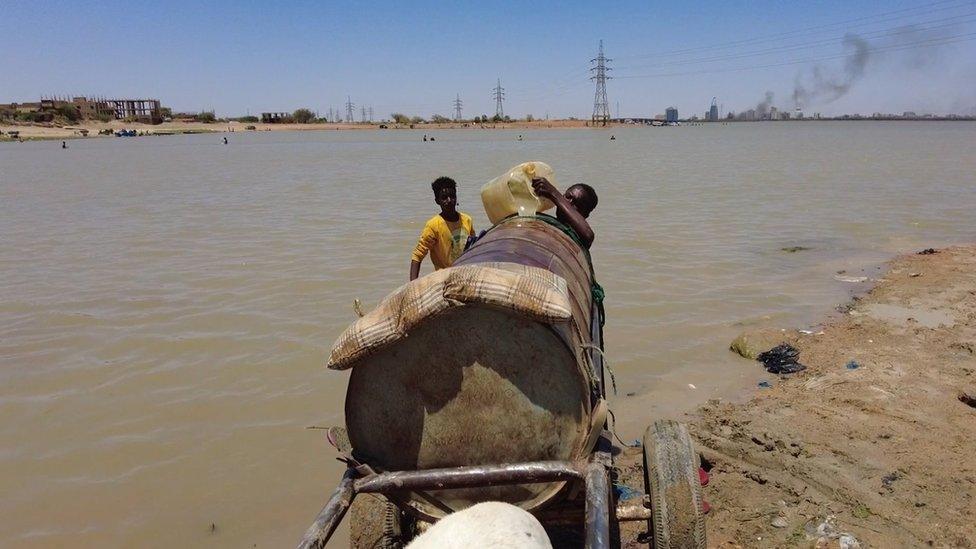
- Published20 April 2023
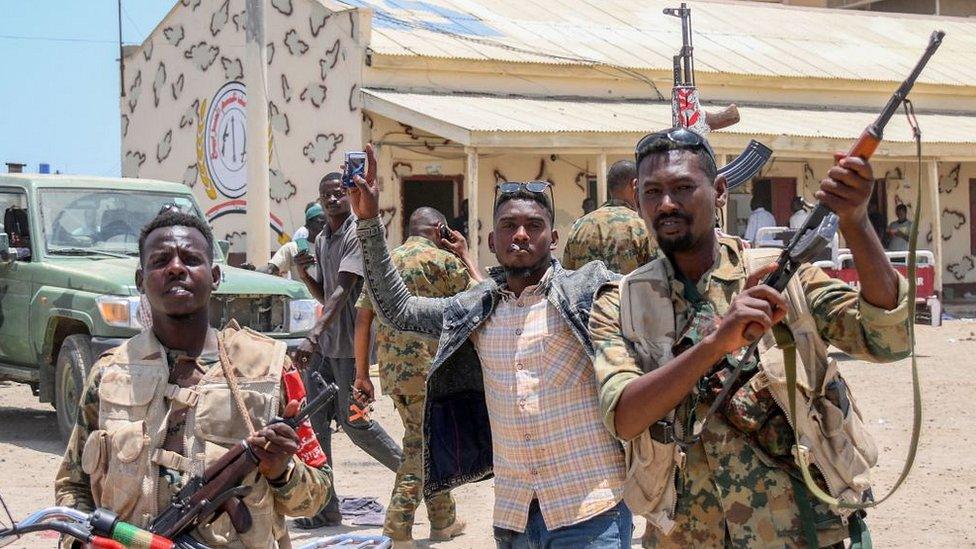
- Published19 April 2023
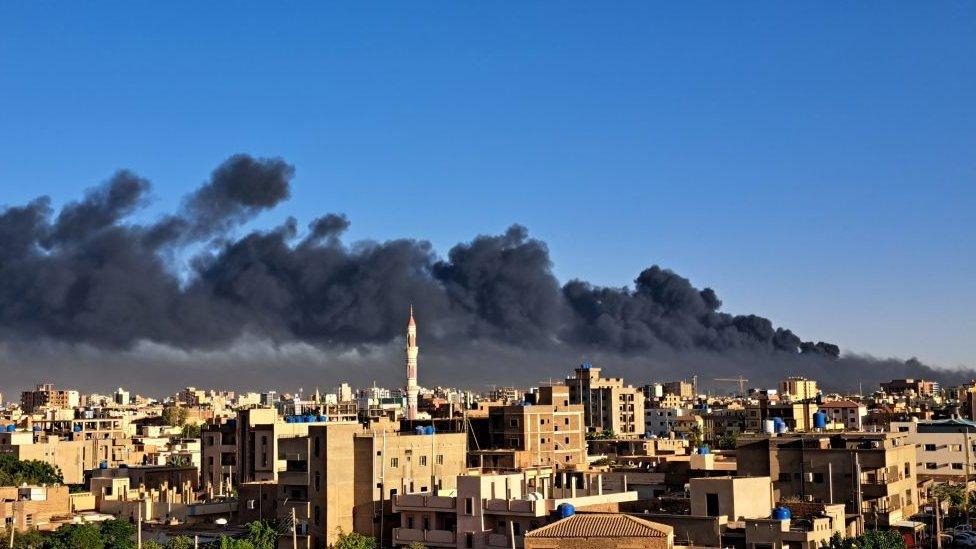
- Published17 April 2023
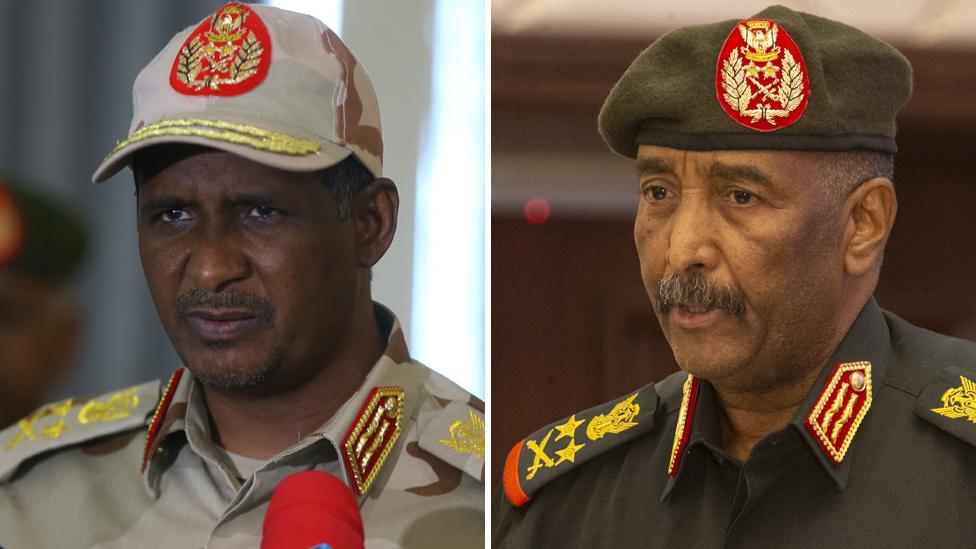
- Published18 April 2023
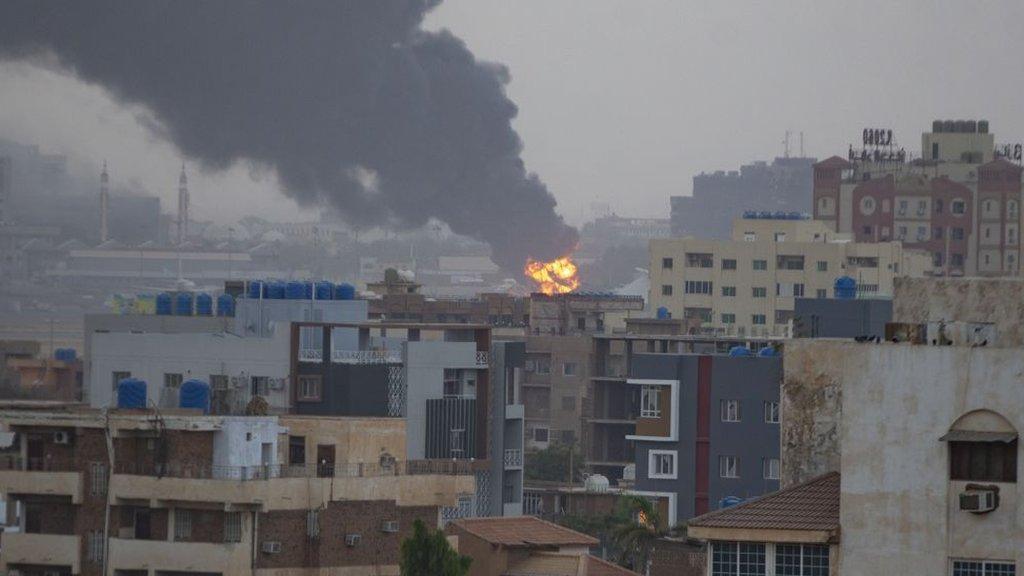
- Published24 April 2023
